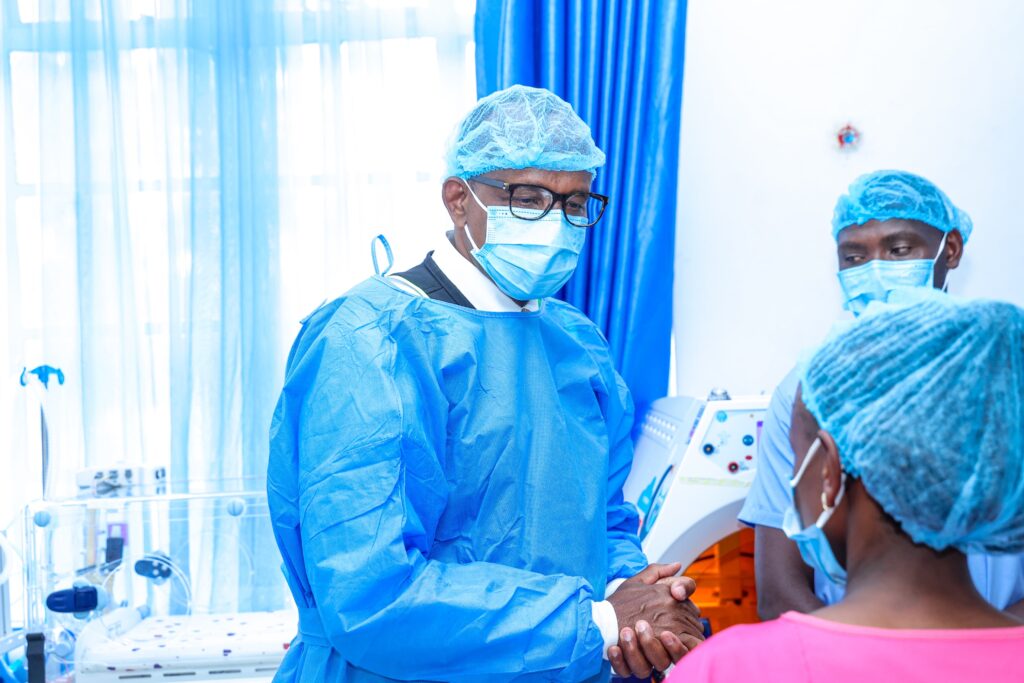The Ministry of Health has announced the expansion of the Taifa Care Model across counties, a move aimed at guaranteeing every Kenyan access to affordable and quality healthcare. The model is one of the government’s flagship approaches to fast-track Universal Health Coverage (UHC) by ensuring essential services are both available and sustainable.
In Uasin Gishu County, Cabinet Secretary for Health Hon. Aden Duale toured several health facilities to assess progress and highlight the impact of the initiative. His first stop was Huruma Sub-County Level 4 Hospital, with a particular focus on the Eye Unit. The unit serves about 100 patients daily and is equipped with a phaco-machine, which has enabled the hospital to successfully conduct more than 120 cataract surgeries under the Social Health Authority (SHA). The service has transformed lives by restoring sight to patients who would otherwise have faced severe challenges accessing specialized eye care.
During the visit, the CS revealed that within the next month, the Benefits and Tariffs Advisory Panel will onboard dental services under SHA. This development will introduce evidence-based benefit packages and tariffs to make dental services affordable and accessible across the country. The focus will be on preventive, restorative, and treatment interventions, ensuring that oral health needs are addressed comprehensively and sustainably.
The CS also inspected the Mama Rachel Ruto Maternity Hospital, which features a 25-capacity newborn unit and a 70-bed capacity overall. The hospital is equipped with modern theatres and advanced medical technology, offering a range of services that demonstrate the Taifa Care Model’s effectiveness. These include maternal and child health services, family planning, and postnatal care, all aimed at reducing maternal and infant mortality rates.
By expanding the Taifa Care Model, the Ministry of Health is strengthening Kenya’s healthcare system while prioritizing the needs of communities. With facilities better equipped and services broadened to include dental and specialized care, the initiative brings the country closer to achieving the goal of universal access to quality healthcare.

